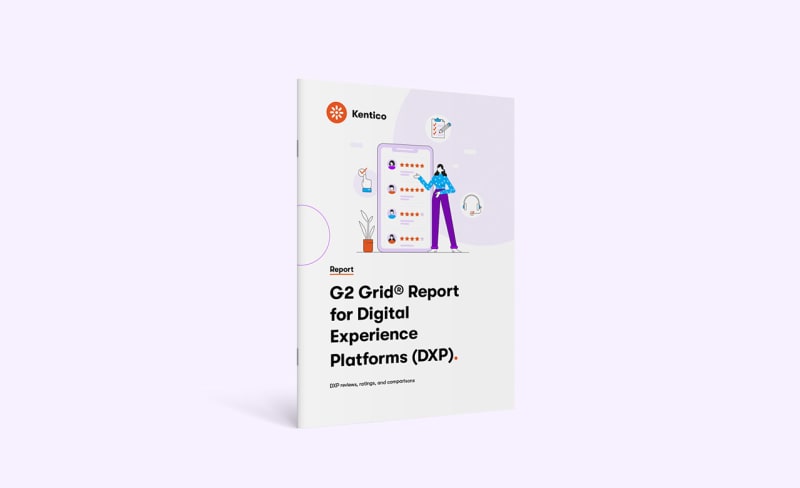Choosing the right CMS can feel overwhelming, especially with so many platforms claiming to be “modern,” “flexible,” or “future-ready.” But underneath the buzzwords, the real question is simple: what actually matters? What should a CMS be able to do for your team, your customers, and your long-term digital strategy?
Modern websites are no longer simple digital brochures. Businesses now demand content management systems (CMS) that are agile, scalable, secure, and capable of supporting sophisticated marketing strategies. Whether you're a marketing team launching campaigns or a digital agency building tailored solutions, these are the 10 must-have features you should expect from any modern CMS.
1. Multichannel Content Management
Modern CMS platforms must go beyond just websites. They should allow content to be created once and reused across various channels like email, microsites, mobile apps, and even digital kiosks.
Multichannel support is essential for delivering a smooth brand experience, no matter where your customers interact with you.
2. Content Hub with Reusable Content
Storing your content in a central content repository allows teams to manage it efficiently. A good CMS should offer a content repository where content can be reused across channels, updated in one place, and localized with ease.
Think of your content hub as your content command center, reducing duplication and ensuring consistency.
3. Visual Page Builder
Gone are the days of relying on developers for every page update. A modern CMS should offer a drag-and-drop page builder so marketers and editors to visually create and manage content using pre-defined components, widgets, and templates.
The result is that you’ll have a faster time-to-market, less dependency on IT, and better agility for campaign launches.
4. Hybrid Headless Architecture
Traditional CMS? Headless CMS? Why not both?
A hybrid headless approach lets you use the CMS for full-page rendering or just deliver structured content to any frontend via APIs. You are getting the best from both worlds: the flexibility of headless with the marketer-friendly UI of traditional CMS platforms.
5. CMS with built-in AI
AI is becoming an essential part of how marketers work with content and campaigns. From content generation and translation to asset tagging, customer journey optimization, and actionable insights, modern CMS platforms are increasingly embedding AI into the core experience.
Some are becoming with agentic frameworks, intelligent AI agents that can propose the right content models, analyze data and provide recommendations, optimize and manage campaigns thus help to marketers with tasks practical execution.
6. Flexibility in Deployment
Modern CMS platforms must support diverse infrastructure needs. Some teams prefer a fully managed SaaS environment, while others require full control over hosting and compliance.
The best systems offer both: SaaS and Private Cloud for those wanting to host on their own infrastructure: on-premises or in a preferred cloud like Azure or AWS.
This deployment flexibility ensures businesses can choose a CMS that fits their strategy, not the other way around.
7. Enterprise-Grade Security and Compliance
Today’s CMS must include comprehensive security features out of the box; role-based access control (RBAC), encryption at rest and in transit, MFA, and compliance with regulations like GDPR and SOC 2.
Security should never be an afterthought; it must be baked into the system’s architecture.
8. Multilingual and Multisite Support
Modern CMS platforms need to serve global audiences and manage multiple digital properties. Supporting multiple languages and websites from a single system makes content teams much faster while less faulty.
A capable CMS should offer tools for translating content, managing language variants, and maintaining consistency across regions.
It should also handle multiple sites under one management environment, whether for different brands, markets, or campaigns.
This streamlines content governance and ensures scalability as your digital footprint grows.
9. Continuous Delivery with Monthly Updates
A modern CMS should be evergreen, with monthly feature updates and weekly hotfixes that keep the platform secure, stable, and evolving with your needs. No more costly upgrades or falling behind competitors.
With a versionless system, you benefit from innovation as soon as it’s released and don’t need to worry of the painful and expensive platform upgrades.
10. Digital Marketing Features (DXP Capabilities)
While not traditionally part of a CMS, today’s digital experience demands have blurred the lines. Many organizations now expect digital marketing capabilities that fall under the Digital Experience Platform (DXP) umbrella.
These include:
- Marketing Automation – Create workflows that guide contacts through onboarding, nurturing, or re-engagement campaigns.
- Personalization – Show different content to different users based on behavior, segments, or attributes.
- Customer Data Management – Keep the customer data in the same system to be able to offer highly relevant content with no need of third-party integrations.
- Customer Journey Mapping – Visualize and optimize how users interact with your brand over time.
- Email Marketing – Send campaigns, newsletters, and automated emails using built-in tools.
Choosing a CMS that includes these capabilities (natively or through seamless integrations) can drastically reduce your MarTech stack complexity and improve ROI.
Final Thoughts: One Platform to Power Them All
These ten features are not just “nice to have,” they’re essential for any business aiming to build compelling digital experiences at scale.
If you’re looking for a platform that brings all of this together into a single, marketer-friendly solution, then Xperience by Kentico is a standout choice. It combines CMS and marketing capabilities in one unified platform that helps teams create, personalize, and optimize content across all channels, faster and more efficiently.

Looking to launch a content management system? Explore the latest G2 Grid report to see how leading CMS platforms like Kentico stack up; based on verified user reviews to guide your decision.


